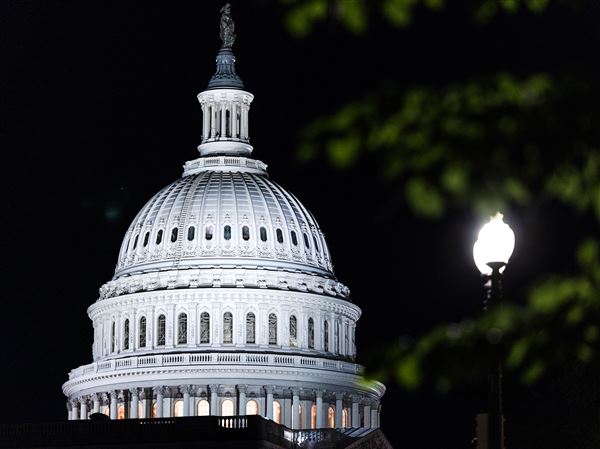President Bush's recess appointment Friday of Charles Pickering to a federal appeals court is one more battle in the long-running Republican-Democratic judge wars. The overall net losers in those wars are the American people.
The case in point is a judge from Hattiesburg, Miss., whom Mr. Bush had sought for three years now to make a judge of the U.S. Court of Appeals for the Fifth Circuit. Democrats in the Senate oppose him for a range of reasons. They claim he is a racist and that they are refusing to confirm his nomination on principle. The Republicans claim he isn't a racist and that the Democrats are just trying to get even with them for having blocked some of President Bill Clinton's nominations to judgeships.
The battle is also, to a degree, about the Republicans seeking to use their current control of the White House, the Senate and the House of Representatives to acquire influence over the judiciary as well, thus, in effect, giving them control of all three branches of the U.S. government.
Pre-eminence in the judiciary, since many of the judgeships are lifetime in tenure, would survive any eventual Republican loss of the White House or the Congress. It is thus particularly valuable to the Republicans if the idea is to turn radically the direction of American governance.
The recess appointment of Mr. Pickering is not especially important in itself. It lasts until the end of the current Senate's session later this year. A new Senate would then either confirm or reject him if Mr. Bush renominated him. Although it didn't involve an interim appointment, Pennsylvania went through a comparable political drama in the case of D. Brooks Smith, nominated to the U.S. Court of Appeals for the Third Circuit, who waited a year for confirmation.
What is much more important is where the American people end up in all of this. Where they end up is that a very important element of American governance has turned into a political football between the two parties to their disadvantage. A Democratic president nominates and Republican senators bat the ball down. A Republican president nominates and the Democrats bat the ball down.
In the meantime, critical judgeships go unfilled, courts' caseloads stack up, and it is likely that some of America's best jurists simply decline nomination by either party because they don't want to be kicked around in the political equivalent of street football.
What is needed on the part of presidents nominating judges is not to seek to put someone on the bench who is clearly so partisan and controversial in his views and reputation as to become a target for party opposition. What is needed on the part of senators is not to oppose judgeship candidates unless the president in question has violated the previous standard of nomination. The goal of both parties should be consensus, not victory.
Americans deserve to have their courts staffed. They do not deserve the spectacle of their political leaders trying to score on each other through messing around with the nomination and confirmation process.
First Published: January 20, 2004, 5:00 a.m.














